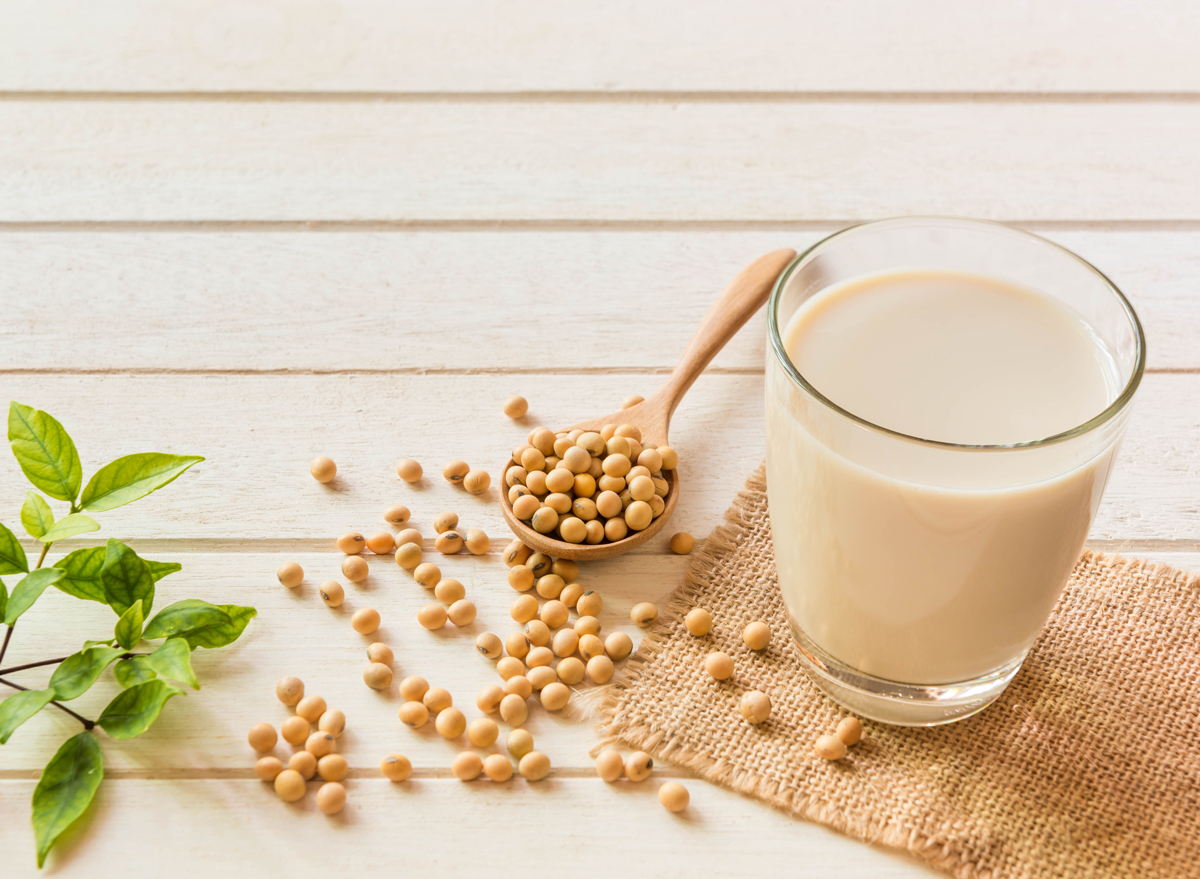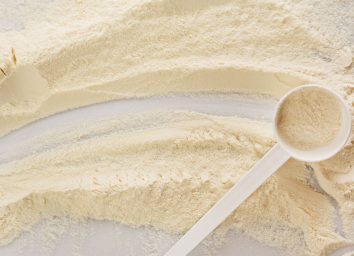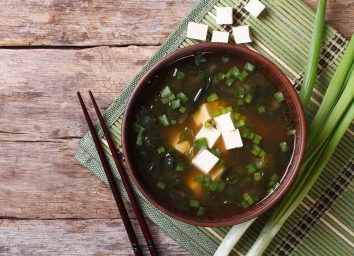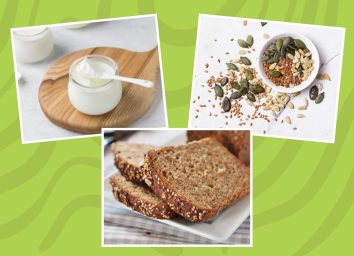What Happens to Your Body When You Drink Soy Milk

It may not be as trendy as almond or oat milk, but soy milk may be healthier. So says a 2018 study published in the Journal of Food Science and Technology, in which researchers compared the nutritional profiles of four popular milk alternatives. Almond, rice, and coconut milk all lacked essential nutrients important for overall health, whereas soy did not, earning it the title of "healthiest milk alternative."
Despite the fact that it looks healthy nutritionally-speaking, soy milk still has a bad rap. Most notably, soybeans are the poster child for genetically modified organisms (GMOs): 90% of the U.S. supply of soybeans are genetically engineered to be herbicide-tolerant, which allows farmers to use higher levels of carcinogenic herbicides when growing. Residues of these herbicides, namely glyphosate, are increasingly being identified in harvested plants and food products, according to experts.
To be fair, the jury is still out on both the pros and cons of the legume, so the best thing to take away from learning about soy milk is to treat it like you would any other food in your diet: eat it in moderation.
It may be one of the better milk substitutes, but that doesn't mean soy milk should be your only milk substitute. Feel free to put it in a rotation with almond, oat, hemp, and even dairy milk. Each beverage contains unique, health-promoting nutrients, and your body can benefit from sipping on all of them.
And when you're shopping for soy milk, our best recommendation is to stick with organic, non-GMO brands to minimize your risk of herbicide intake. Look for the USDA Organic label, which ensures that a food contains no GMOs and that the food has gone through residue testing to ensure there are no prohibited pesticides in the supply chain.
So, let's get to it: what can you expect to happen to your body when you drink soy milk? Read on, and for more on healthy eating, don't miss 7 Healthiest Foods to Eat Right Now.
You may help build muscle mass.

Take a look at all the milk substitutes out there and you'll see the same thing: they're all lousy sources of protein. While dairy milk contains eight grams of protein per serving, an alt-milk like almond milk contains one to two grams (and rice milk contains zero). Soy milk, on the other hand, is a good source of protein, with seven to eight grams per serving. Plus, soybeans are a complete source of protein, meaning it contains all nine amino acids—not something all plant-based sources of protein can claim.
You may not be getting as much calcium as you think.

Calcium is an important mineral for bone health, and consuming enough calcium in your diet can lower the risk of osteoporosis and colon cancer. Dairy products are among the top sources of calcium in our diets, but they aren't the only way to get calcium.
Almost all soy milk is fortified with 30% of your daily value of calcium; however, an American Journal of Clinical Nutrition study found that this type of calcium isn't as bioavailable to your body as the calcium in dairy milk. What that means is that the amount of calcium you see on the label isn't the amount your body will actually absorb.
This isn't unique to soy milk, according to the Harvard School of Public Health; most plant-based sources of calcium won't deliver as much calcium to your body as dairy products will.
As long as you're eating a balanced diet that contains many calcium-rich foods, you don't have to worry too much. But if you've been relying on soy milk for your calcium intake, consider adding other calcium foods to your diet.
Men may lower their risk of prostate cancer.

Surprising, but true: soy products are rich in antioxidants! Specifically, soy is a good source of isoflavones, such as genistein and daidzein, which have been linked to anti-cancer properties. Despite soy milk containing a lower concentration of isoflavones than other soy produces like tofu or edamame, a study published in Cancer Causes & Control found that men who consumed more than one cup of soy milk a day had a 70 percent reduction of the risk of prostate cancer compared to those who consumed less.
You may lower your blood pressure.

That same isoflavone mentioned earlier, genistein, apparently can do more than just lower your risk of cancer. A study published in The Journal of Nutrition found that when men and women with mild-to-moderate hypertension (high blood pressure) drank two cups of soy milk twice a day for three months, they saw a small but significant decrease in blood pressure compared to baseline and to those who consumed the same amount of cow's milk. The researchers attribute the blood-pressure-lowering effect to genistein, which they found to be in significantly higher amounts in participants after the intervention.
You may ease your digestive issues.

Lactose intolerance is extremely common, affecting up to 70% of people worldwide. To relieve the digestive distress you may encounter after consuming dairy products, you may consider finding an alternative! Say, soy milk? Soy milk is the milk alternative that's most nutritionally comparable to dairy milk and it just so happens to be lactose-free. Finding comparable, healthy substitutes to food intolerances is an easy way to promote better digestive health. So, too, is eating more of these 20 Foods That Relieve Your Gut Problems, Say Dietitians.








